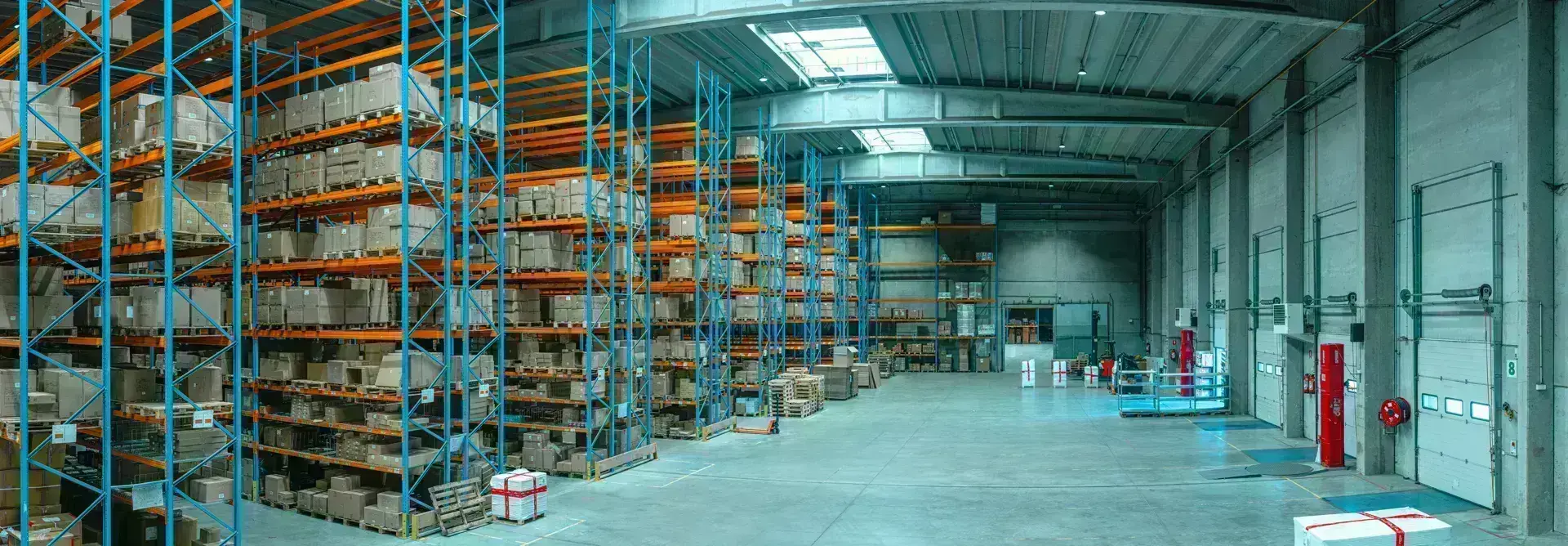
Supply Chain Management Software: Your Digital Transformation Toolkit.
Leverage AI, IoT, and Advanced Analytics to Optimise Your Entire Supply Chain
HeadChannel
https://www.linkedin.com/company/headchannel
Published: November 03, 2023
Last Updated: January 06, 2025
Supply chain management software (SCM) is transforming how businesses operate. It’s not just software. It’s a complete revolution in how companies handle their operations, from raw materials to final delivery.
Understanding SCM Software
Supply chain management software coordinates the complex dance of materials, information, and finances across the supply chain. It’s the conductor of a business orchestra, ensuring every section plays in harmony. Much like how business intelligence tools can help drive sales, SCM software provides crucial insights for operational efficiency.
Modern SCM solutions have evolved far beyond simple tracking tools. Today’s systems use artificial intelligence, machine learning, and real-time analytics to predict issues before they arise. According to recent research, companies using advanced SCM software see an average 15% reduction in supply chain costs.
Core Functions
The heart of SCM software beats with several vital functions:
Planning and forecasting drive everything. The software analyses historical data, market trends, and current conditions to predict future needs. This isn’t guesswork. It’s precision planning backed by data, similar to how modern businesses leverage data-driven decisions.
Procurement becomes streamlined. The software manages supplier relationships, automates purchasing, and ensures compliance with company policies. It’s like having a procurement expert working 24/7.
Inventory management transforms from a headache into a science. Real-time tracking eliminates stockouts while preventing excess inventory. The system knows what you need before you do.
Warehouse operations become efficient and error-free. The software optimizes storage, picking routes, and shipping schedules. Every square metre of warehouse space works harder.
The Benefits Revolution
The benefits of SCM software are transformative. They touch every aspect of operations, much like how digital transformation impacts various business aspects.
Operational Excellence
Efficiency soars when SCM software takes charge. Manual tasks disappear. Human error vanishes. Processes that once took days now happen in minutes.
The software creates a single source of truth. Everyone sees the same data, updated in real-time. No more conflicting spreadsheets or outdated reports.
Cost Control
Cost savings appear everywhere. Inventory carrying costs drop. Transportation routes optimize themselves. Labour costs decrease as automation handles routine tasks.
Research shows that companies implementing SCM software typically see a 10-20% reduction in operational costs within the first year.
Risk Management
Modern SCM software acts as an early warning system. It spots potential disruptions before they impact operations. Alternative suppliers are identified. Backup plans activate automatically.
The software monitors supplier performance, weather patterns, and global events. It suggests adjustments before problems occur. This proactive approach keeps operations running smoothly.
Customer Satisfaction
Happy customers are the ultimate goal. SCM software helps deliver on promises consistently. Orders arrive on time. Stock is always available. Communication flows smoothly.
The system provides real-time updates to customers. They know where their order is and when it will arrive. This transparency builds trust and loyalty.
Implementation Considerations
Success with SCM software requires careful planning. It’s not just about choosing software. It’s about transforming your business through effective IT strategy.
Choosing the Right Solution
The market offers many options. Some focus on specific industries. Others provide general solutions. The key is matching software capabilities to your needs.
Consider these factors:
- Your industry’s specific requirements
- Company size and growth plans
- Integration needs with existing systems
- Budget constraints
- Implementation timeline
Change Management
People matter most in any technology implementation. Your team needs to understand and embrace the new system, similar to how businesses prepare employees for new software adoption.
Training becomes crucial. Not just in using the software, but in understanding new processes and workflows. Success depends on user adoption.
Cost Considerations
Investment in SCM software varies widely. Cloud-based solutions often offer lower initial costs but may have higher long-term subscription fees. On-premise solutions require more upfront investment but might cost less over time.
Consider the total cost of ownership:
- Software licenses
- Implementation services
- Training
- Maintenance
- Updates
- Support
Industry-Specific Applications
Different industries leverage SCM software in unique ways.
Manufacturing
Manufacturing software development enhances SCM capabilities for production environments. The system coordinates suppliers, production schedules, and delivery timelines. Everything flows smoothly from raw materials to finished products.
Retail
Retailers rely on SCM software to manage complex inventory across multiple locations. The system ensures stock is available when and where needed. It predicts seasonal demands and manages promotions effectively.
Healthcare
Healthcare software development solutions integrate with SCM systems to manage critical supplies and medications. The system ensures compliance with regulations while maintaining efficient operations. It tracks expiration dates and maintains proper storage conditions.
Future Trends
The future of SCM software looks exciting. New technologies continue to enhance capabilities.
Artificial Intelligence
AI is revolutionizing supply chain management. Machine learning algorithms improve forecasting accuracy. Natural language processing simplifies user interaction. Automated decision-making speeds up responses to changes.
Internet of Things
IoT devices provide real-time data from across the supply chain. Sensors monitor conditions, track locations, and measure performance. This data feeds directly into SCM software for immediate analysis and response.
Blockchain
Blockchain technology is entering the SCM space. It provides unalterable records of transactions and movements. This transparency builds trust and reduces fraud.
Making the Decision
Choosing to implement SCM software is significant. It requires careful consideration and planning.
Start by assessing your current operations. Identify pain points and inefficiencies. Consider where automation could make the biggest impact.
Research potential vendors thoroughly. Look for those with experience in your industry. Check references and case studies.
If you’re ready to explore how SCM software could transform your operations, contact us for expert guidance.
Conclusion
SCM software isn’t just another business tool. It’s a strategic asset that can transform operations, reduce costs, and improve customer satisfaction.
The benefits are clear:
- Improved efficiency
- Better cost control
- Enhanced visibility
- Reduced risks
- Higher customer satisfaction
Success requires careful planning and implementation. But for businesses ready to embrace change, SCM software offers a path to competitive advantage.
The future of supply chain management is digital. Companies that adopt SCM software now position themselves for success in an increasingly competitive global market.
Consider your options carefully. Evaluate your needs thoroughly. Then take the step toward transformation with SCM software.
Remember, the goal isn’t just to manage your supply chain. It’s to optimize it for maximum efficiency and competitive advantage. With the right SCM software solution, that goal becomes achievable.

Contact us.
If you need a partner in software development, we're here to help you.
We will respond to your enquiry immediately.